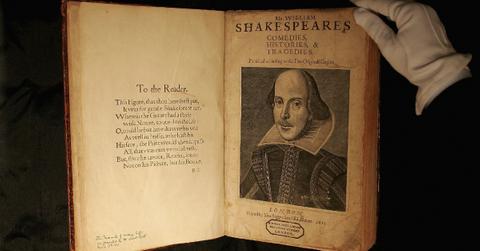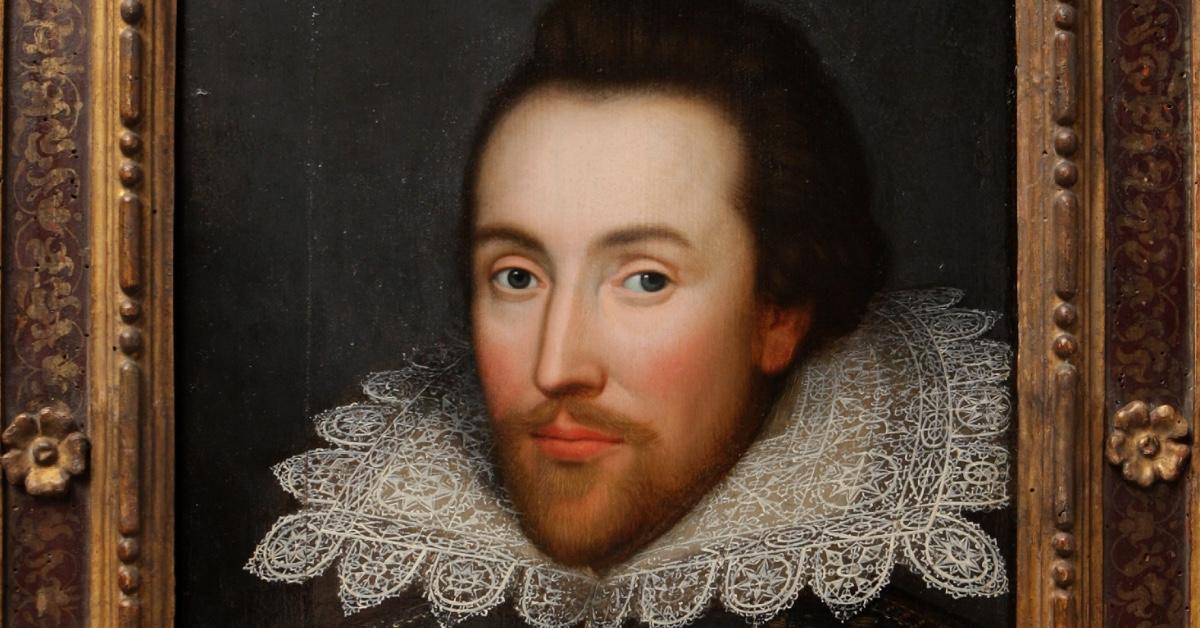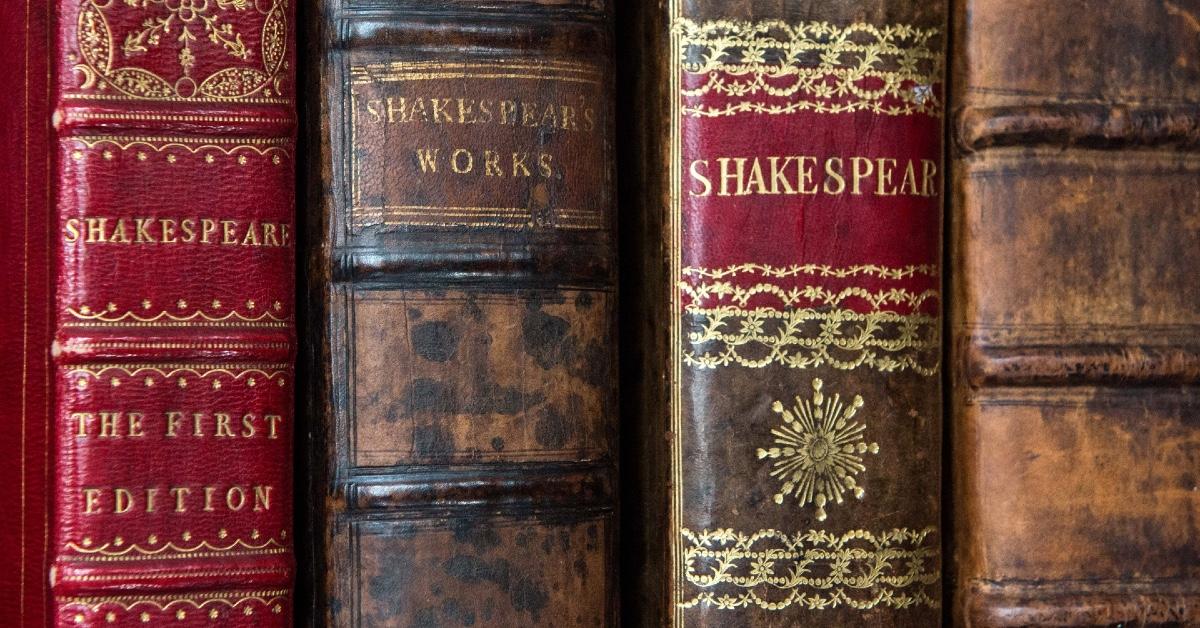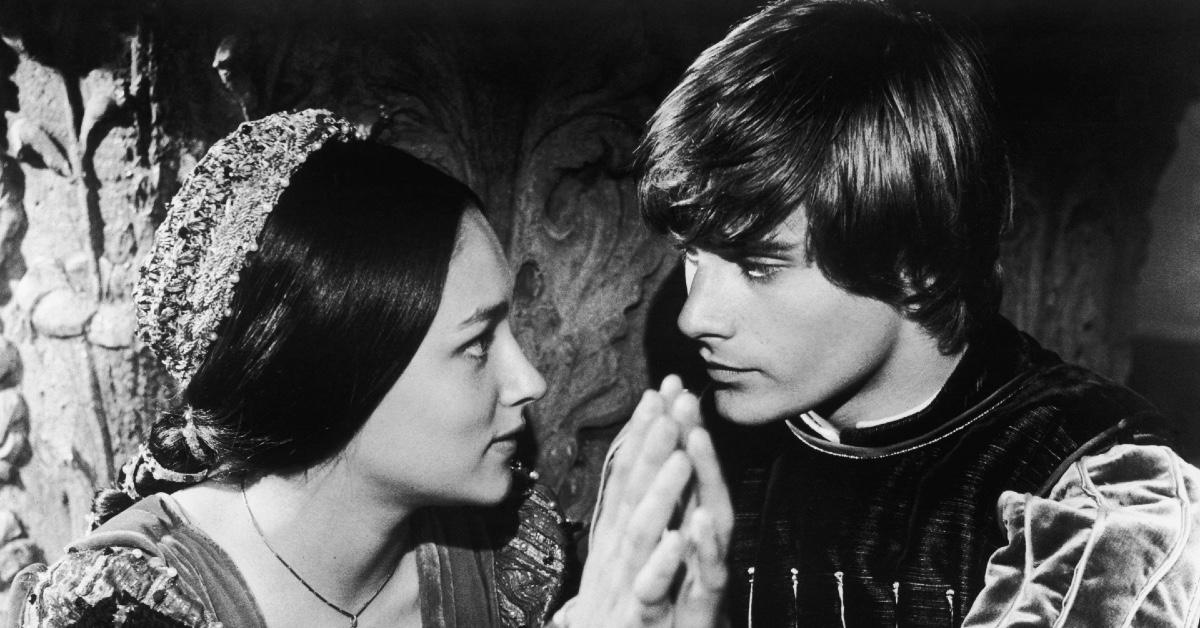Was Shakespeare Gay? His Sexuality Is Still Debated by Scholars Today
Published April 22 2021, 6:12 p.m. ET

"Romeo, O Romeo, wherefore art thou Romeo?" To most people, William Shakespeare is the poet and playwright they had to suffer through in high school English. Despite his unique written verse and tricky metaphors, there's a lot about Shakespeare's life that's still unknown. One of the most debated details of his life is whether or not Shakespeare was gay.
The answer? It's a little more complicated than "yes" or "no." Here's everything we know.
Was Shakespeare gay? If anything, Shakespeare was likely bisexual.
Like most of the details involving Shakespeare's personal life, there's not much evidence to confirm one way or another. Most scholars interested in Shakespeare's romantic preferences will point to his sonnets as evidence that he was romantically involved with more than just his wife. Shakespeare married his wife, Anne Hathaway, at the tender age of 18, while Anne was eight years older at 26.

Anne and William Shakespeare shared three children and remained married until he died in 1616, but they weren't always physically together. When he moved to London between 1585 and 1592, his family did not join him. Divorce was practically unheard of during this period, meaning that even if the two fell out of love with one another, they were almost stuck in that relationship.
Of the 155 sonnets Shakespeare wrote, several are seemingly addressed to a wealthy young man who reciprocates his affections but acknowledges they can never be together. However, not all is entirely smooth sailing, and sometimes the sonnets detail painful longing or jealousy. Some of these sonnets include Sonnets 1 to 126. Scholars have often referred to this character as the "Fair Youth."

However, not all the sonnets are directed to a male recipient, and many are directed to a "Dark Lady," who Shakespeare finds himself infatuated with at court. The sonnets directed to this Dark Lady are Sonnets 127 to 152. They are more sexually explicit and even hint at a love triangle between Shakespeare, the Fair Youth, and the Dark Lady. In this duality alone, most scholars have concluded that Shakespeare was not necessarily entirely straight but not entirely gay either.
Were the people Shakespeare references in his sonnets real people?
Once again, scholars have heavily debated the potential identities of the recipients of Shakespeare's sonnets. Some suggested that the Fair Youth was William Hughes, an actor who often played female parts in Shakespeare's plays. Others have suggested that the Youth was Henry Wriothesley, the Third Earl of Southampton, whose features and age match the description from the sonnets. He was an admirer and patron of Shakespeare's, as well as a prominent nobleman.

The Dark Lady, however, was rumored to be any of a myriad of Queen Elizabeth I's court ladies. Mary Fitton, Emilia Lanier, Elizabeth Wriothesley, and many others have all been suggested as the Dark Lady's potential identity. Sadly, there isn't enough evidence to conclude just who Shakespeare wrote about.
Whether you're an English nerd or a casual fan, celebrating Shakespeare's birthday (and death day) on April 23 is always fun. Check out all the neat ways Shakespeare influenced the English language we know and love. Maybe Shakespeare will provide the inspiration to tackle the sonnets or rewatch Romeo + Juliet.